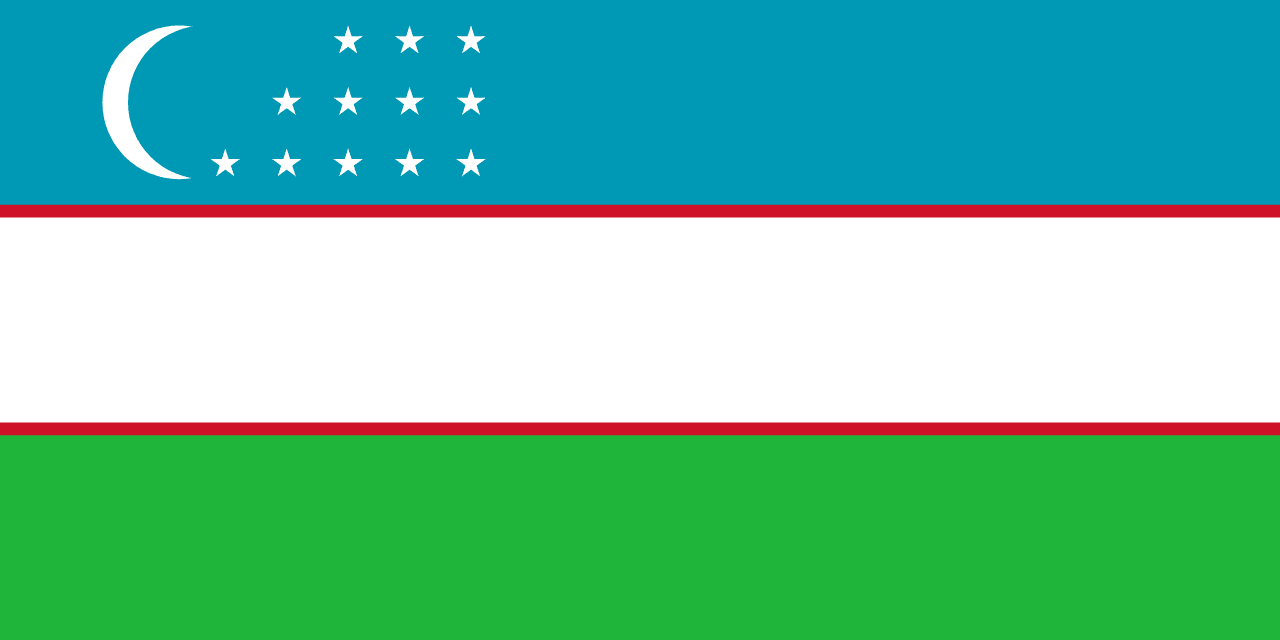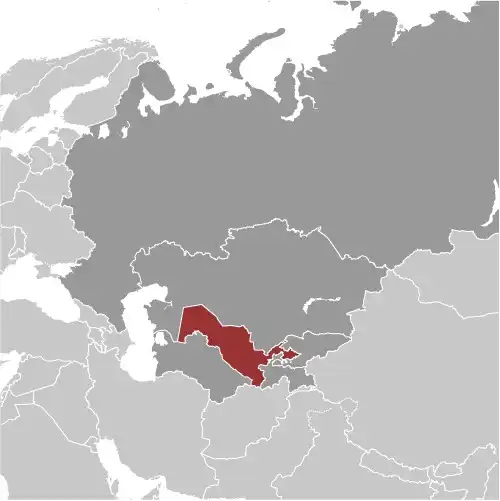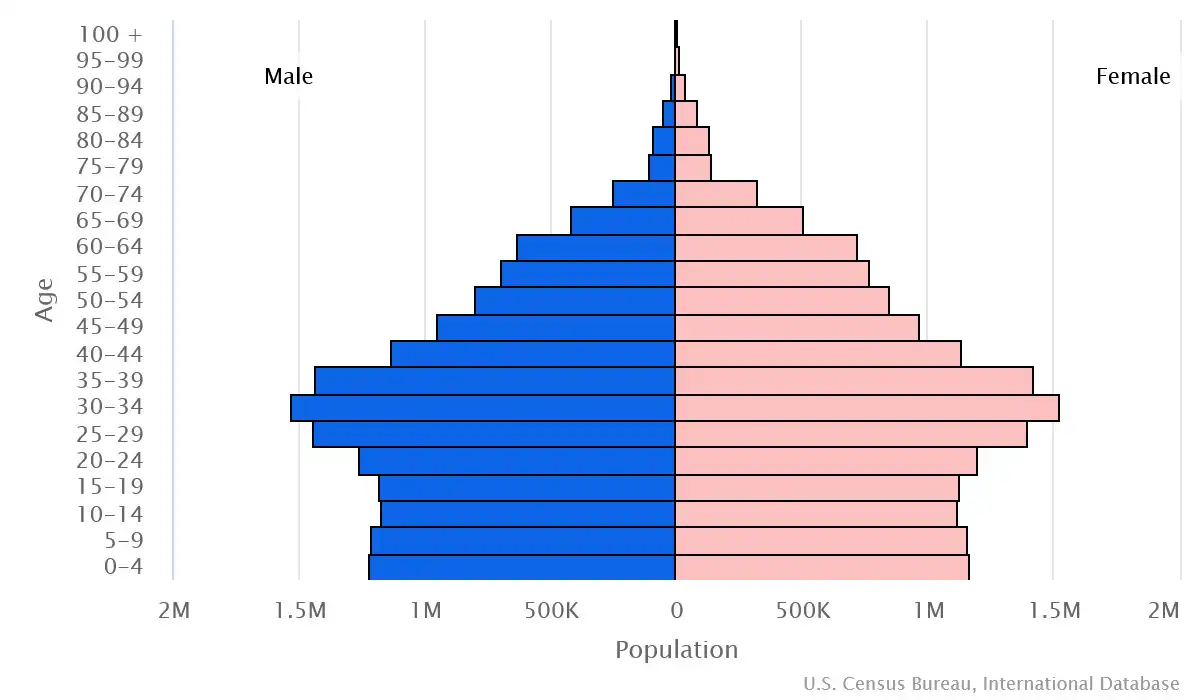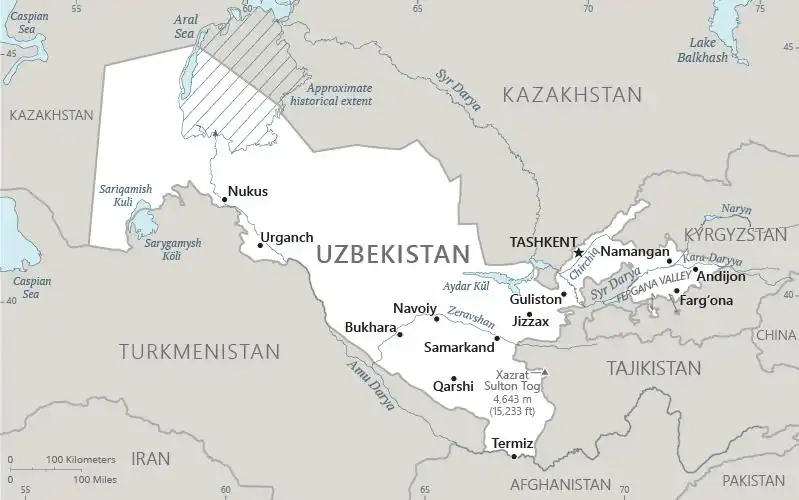
Uzbekistan Country Profile
Key Facts of Uzbekistan

| Government type: | presidential republic; highly authoritarian |
| Capital: | Tashkent (Toshkent) |
| Languages: | Uzbek (official) 74.3%, Russian 14.2%, Tajik 4.4%, other 7.1% |
Uzbekistan Demographic Data
Ethnic Groups in Uzbekistan(2017 est.)
Religious Groups in Uzbekistan (mostly Sunni)
Age pyramid of Uzbekistan

Uzbekistan Economy Statistics
Economic overview of Uzbekistan
lower middle-income Central Asian economy; CIS Free Trade Area member but no intention of EAEU membership; key natural gas, cotton, and gold exporter; landlocked and environmentally fragile; positive growth through COVID-19, but poverty increasing
Uzbekistan Real GDP (purchasing power parity) in Billion $
Uzbekistan Real GDP per capita in $
Uzbekistan's Exports & Imports in billion $
Top 5 Import Partnerin 2022 (69%) of Uzbekistan
Top 5 Import Commodities in 2022 of Uzbekistan
- vehicle parts/accessories 🛠️🚗
- packaged medicine 💊
- cars 🚗
- wheat 🌾
- refined petroleum ⛽
Top 5 Export Partnerin 2022 (68%) of Uzbekistan
Top 5 Export Commodities in 2022 of Uzbekistan
- gold 💰
- cotton yarn 🧵
- garments 👕
- natural gas 💨
- refined copper 🟧🪙
Geography of Uzbekistan
Map of Uzbekistan

Land and Water Distrubtion of Uzbekistan
Natural Resources of Uzbekistan
- natural gas 💨
- petroleum 🛢️
- coal ⚫
- gold 💰
- uranium ☢️
- silver 🪙
- copper 🟧🪙
- lead and zinc 🔩
- tungsten 🔧
- molybdenum 🪨
Climate inUzbekistan
mostly mid-latitude desert, long, hot summers, mild winters; semiarid grassland in east
History of Uzbekistan - a Summary
Uzbekistan is the geographic and population center of Central Asia, with a diverse economy and a relatively young population. Russia conquered and united the disparate territories of present-day Uzbekistan in the late 19th century. Stiff resistance to the Red Army after the Bolshevik Revolution was eventually suppressed and a socialist republic established in 1924. During the Soviet era, intensive production of "white gold" (cotton) and grain led to the overuse of agrochemicals and the depletion of water supplies, leaving the land degraded and the Aral Sea and certain rivers half-dry. Independent since the Union of Soviet Socialist Republics (USSR) dissolved in 1991, the country has diversified agricultural production while developing its mineral and petroleum export capacity and increasing its manufacturing base, although cotton remains a major part of its economy. Uzbekistan’s first president, Islom KARIMOV, led Uzbekistan for 25 years until his death in 2016. His successor, former Prime Minister Shavkat MIRZIYOYEV, has improved relations with Uzbekistan’s neighbors and introduced wide-ranging economic, judicial, and social reforms. MIRZIYOYEV was reelected in 2021 with 80% of the vote and again following a 2023 constitutional referendum with 87% of the vote.
